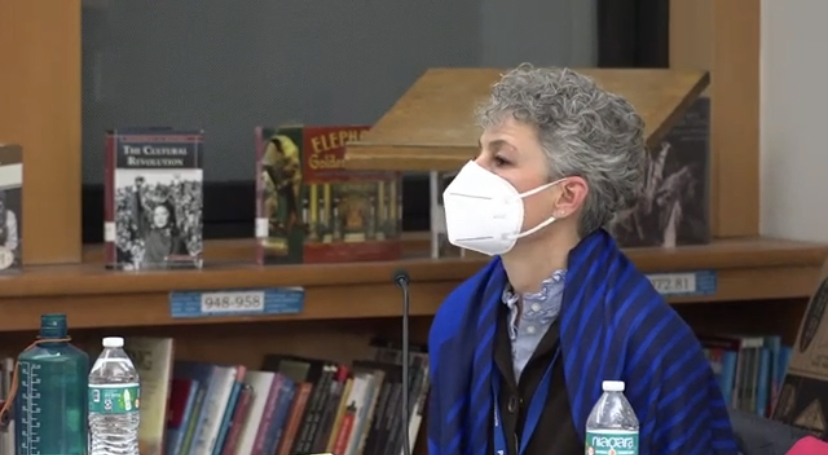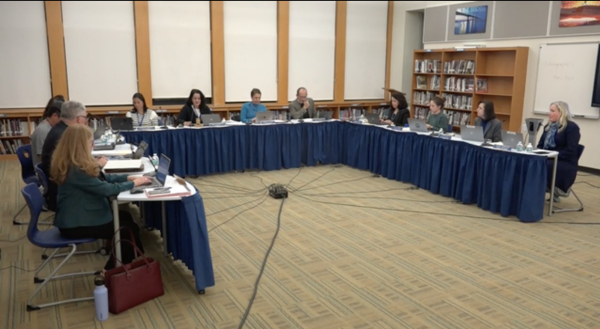Residents criticize revisions to school district’s six-month-old diversity policy
The Pelham Board of Education laid out a major rewrite of the diversity, equity and inclusion policy it adopted only six months ago, prompting criticism from eight Pelham residents during the Jan. 19 board meeting.
This was the first reading of the revised policy, which must have two more meetings before the board can vote on it. The current policy was approved July 13 over the objections of the board’s two new newest members and then returned to the board’s policy committee for possible changes.
President Jessica DeDomenico read into the record citizen statements submitted by email because public participation in the meeting was barred under the authority of a Covid-19 executive order by Gov. Kathy Hochul. Commenters said they were displeased with the extent of the edits made, especially the changes made to definitions in the policy. Some expressed concern the rewrite would dilute the hard work of the residents who crafted the original document.
The revised policy “is entirely out of line with the New York State guidelines and completely decimates any actual intentions to promote equity,” said Deborah Lowrey-Knapp.
Melissa Labonte said, “The proposed new policy reflects revisions to definitions but also includes substantial revisions detrimental to the ethos and agreed-upon goals of the policy the BOE adopted on July 13.”
“The new definition of equity differs fundamentally from what the Board of Regents has articulated as the bare minimum needed for a DEI policy,” said Paula Wood.
The proposed policy eliminates the definition of “equity gap,” rewrites the definitions of “equity” and “culturally responsive” and adds definitions for “diversity” and “inclusion.”
Substantive Changes
The changes in the wording are substantive. For example, in the current policy approved on July 13, equity is defined as, “Providing each student what they need to achieve their own success.” The new document states equity “[includes] but is not limited to the seeking of fair treatment, access, opportunity and advancement for all while striving to identify and eliminate barriers that have prevented the full participation of all groups.”
The first and second paragraphs of the proposed revision are also altered, expanding the classes of individuals covered by the DEI policy, adding color, veteran status, education, marital status, genetic information and learning styles, while expanding the term sexuality in the current policy to include gender expression, gender identity and sexual orientation. Country of origin was dropped in the rewrite.
The change to the last sentence of the second paragraph indicates the tug of war that must have been going on over the concept of “equity gaps,” though what that tug of war was residents may never know due to the opaque nature of the board’s policy development process.
In the current policy, it reads: “[O]ur goal is to increase access and eliminate equity gaps for our students.”
The new language states: “[O]ur goal is to provide access and foster academic excellence for all students.”
“We went through these items to ensure that even though ‘equity gap’ is not defined in our definitions, that we are still addressing inequities in our schools,” said DeDomenico.
Same Concept
The rewrite “encompasses the same concept without including the term ‘equity gap,’” added Trustee Leah Tahbaz. The board considered the definitions and compared them to a sample policy provided by a consulting service and the definitions included by the New York Board of Regents in its policy statement on diversity, equity and inclusion, she said.
“We used both of those, and the intent of our prior policy, when we considered these new definitions,” Tahbaz said.
Trustee Michael Owen-Michaane said the revised DEI policy “should not really be open to interpretation. It has to be settled. If there is something that is unfair, we have to correct it urgently.”
The move to revise was prompted after the board adopted the DEI policy following its third reading July 13, but not before Owen-Michaane and Trustee Ian Rowe, both newly sworn-in, criticized language in it and voted for a motion to amend it that was defeated 5-2. The policy was then adopted unanimously and sent back to the policy committee for possible revision based on edits suggested by Owen-Michaane and Rowe, particularly that Pelham use the definitions Owen-Michaane said were provided by the Board of Regents. That led to the language presented at the Jan. 19 meeting.
The original DEI policy was written based on recommendations from the board’s policy committee and a subcommittee of the cultural competence committee. In April, the Board of Regents called on districts to “develop policies that advance diversity, equity and inclusion as a priority in their schools.”
Bella is a senior at Pelham Memorial High School. She plays field hockey and golf, is on the Pelican Yearbook Staff and is the President of the Pelham...











Liz Massie • Feb 1, 2022 at 10:48 pm
To those who supported Rowe and Owen-Michaane in last year’s school board election – congratulations! This is the destruction of meaningful, thoughtful DEI policy that you hoped for. For the rest of us, the battle continues.
Tommy O’Halloran • Feb 2, 2022 at 4:53 pm
Liz. They won their positions via a democratic process, and by a fairly wide margin. I for one proudly supported them. Clearly we have people in our town with varying opinions, but if coming together as a community is honestly a goal, comments like yours are not helpful.
Joanne Case • Feb 2, 2022 at 6:09 pm
Ms Massie, your comments are very unkind. Both Ian And Michael are parents of children in the school system, and like all of us, they want what is best for all. The revised DEI policy was supported unanimously in the Policy Committee. Further, the revised policy complies and comports with the NYS Regents policy. Let’s think twice before going into the negativity zone.
Eileen Miller • Feb 2, 2022 at 8:18 pm
Hi Liz, I’m afraid I disagree with you. First, I believe this policy is stronger than the start because it is based in the mission of the District, rather than in the strategic plan, which will give it a much longer “shelf life”. Second, I’m assuming you’re unhappy about the removal of the “equity gap” definition. I have read the policy fully, and I believe wholeheartedly that the concept is included in the other definitions. I would encourage you to share the deficits you see with the Board. And finally, to address your characterizations of Michael and Ian. Michael is on the policy committee and I can tell you it is a collaborative committee. Ian is not on the committee, so any input from him will come in public. So far I’m not aware that we have any.